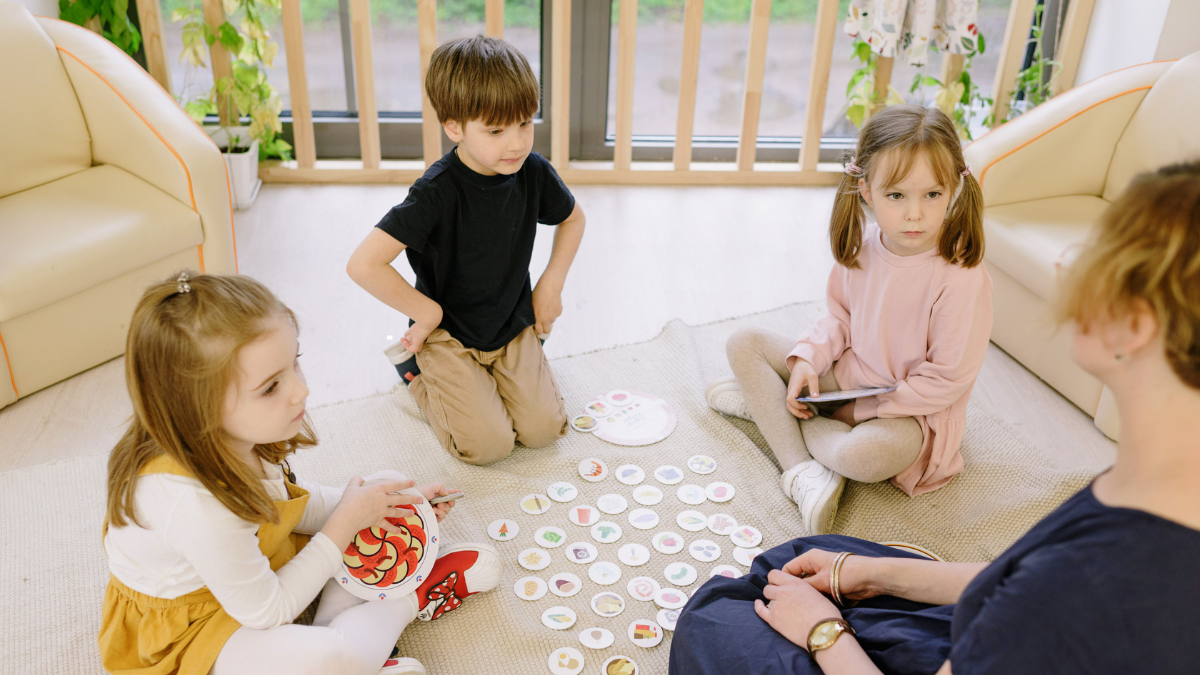It seems that getting your children to listen to you is like an uphill task at times, especially when dealing with kids who are distracted, defiant, or simply not hearing you. It can be frustrating. However, teaching your children to listen is a vital parenting skill. Mastering this can enhance communication, reduce stress, and promote healthier relationships between you and your children. The good news is that you can help your children become better listeners by adopting strategies that create an atmosphere of understanding, respect, and cooperation.
Here are some effective ways to foster a more harmonious environment and get your kids to listen:
1. Active Listening Model
Children are more likely to listen when they notice that you are genuinely listening to them. By modeling active listening, you not only show that their opinions and feelings are important, but you also foster an atmosphere of mutual respect. Here’s how you can practice it:
Listen Attentively: When your child speaks, stop what you’re doing and focus on them. This conveys that you care about what they are saying.
Empathize with Them: Avoid dismissing their emotions. For example, “I know you’re upset because you have to go home from the park.”
Kneel at Their Level: When addressing them, get down to their eye level to ensure eye contact. This makes them feel heard and seen.
Active listening shows your child the importance of communication and builds their tendency to listen to you.
Related: How to Make Your Kids Smarter
2. Simple and Easy Language
At times, children fail to listen because the instructions are too complex. Keeping your language simple and clear helps your child understand exactly what you expect.
Be Straight and to the Point: Don’t over-explain. For example, instead of saying, “Could you kindly put your toys away and place them in their proper spots?” say, “Please put your toys away now.”
Give Simple Instructions: Break tasks into smaller steps for younger children.
Be Consistent in Your Language: Use the same words and phrases to avoid confusion. For instance, always say “It’s bedtime” at the same time each night.
Clear communication minimizes misunderstandings and helps your child understand exactly what’s expected.
Related: How to Make Your Kids’ Birthday Special
3. Ask, Don’t Tell
Instead of barking orders, use more respectful requests that encourage collaboration.
Use Positive Language: Instead of saying “Don’t leave your toys on the floor,” say “Please put your toys in their place.”
Provide Choices: Giving your child options makes them feel in control. For example, “Would you like to do your homework now or in 10 minutes?”
Avoid Power Struggles: If they refuse to do something, make the request in a calm and positive manner. This helps avoid resistance.
Requesting cooperation instead of commanding it creates a more respectful and collaborative environment.
Related: How To Make Your Kids Do Chores
4. Positive Reinforcement
Praising your child for good behavior is an effective way to encourage listening and cooperation.
Compliment Their Efforts: Praise your child when they listen and follow through on requests. For example, “Wow, nice job putting your shoes away without needing a reminder!”
Reward System: Use a reward system to motivate your child. For instance, they can earn points or stars for following instructions, which can be exchanged for rewards like extra screen time or a special treat.
Be Specific with Praise: Instead of simply saying, “Good job,” specify what they did well, such as “I’m proud you cleaned up all your toys by yourself.”
Positive reinforcement strengthens good behavior and encourages your child to listen.
Related; How to Make Your Kids Mentally Strong
5. Set Up Routine and Consistency
Children thrive on routine and consistency. By setting clear routines, your child will know what’s expected and will be more likely to listen.
Fix Times for Activities: Establish a routine for activities such as meals, bedtime, and chores. For example, “We’ll read a book before bed after dinner.”
Remain Consistent in Expectations: Stick to your rules and expectations to create a consistent environment. This helps your child understand limits and builds trust.
Utilize Visual Schedules: Younger children may benefit from a visual schedule to show them what’s coming up during the day. This reduces resistance and helps them anticipate tasks.
A consistent routine makes your child feel safe and encourages them to listen to instructions.
6. Establish Boundaries & Consequences
Children must understand that their actions have consequences. By setting clear boundaries and following through with consistent actions, you teach your child the importance of listening.
Define Boundaries: Clearly state what’s acceptable and what isn’t. For instance, “We don’t yell when we’re angry. Instead, we use our words to express how we feel.”
Explain Consequences: Let your child know what will happen if they fail to listen or break the rules. For example, “If you don’t clean up your toys, they will be put away until tomorrow.”
Follow Through: Ensure that you consistently enforce consequences. This teaches your child that their actions have outcomes.
Having clear boundaries and consequences teaches your child accountability and the importance of listening.
7. Be Tolerant and Calm
When your child isn’t listening, it’s easy to become frustrated. However, patience is key. Here’s how to stay calm:
Take a Deep Breath: If you’re frustrated, take a moment to breathe and calm yourself before reacting.
Maintain a Calm Tone: Speak in a calm but firm tone to avoid escalating the situation.
Avoid Threats: Instead of threatening your child, calmly explain the consequences of not listening.
Being patient and maintaining a calm demeanor helps create an atmosphere of mutual respect and cooperation.
FAQ on How to Get Your Kids to Listen
1. What could happen when my child ignores me all the time?
If your child consistently ignores you, try calling their name, making eye contact, and speaking calmly. If the behavior persists, it may be time to review expectations and consequences.
2. What does it take to improve the listening skills of a child?
Foster active listening by setting an example. Encourage eye contact, praise them when they listen, and involve them in regular conversations.
3. What should I do when my child does not take directions?
Remain calm and consistent. Be specific with your instructions, and explain the consequences of not following them. Give them choices to help them feel more in control.
4. What do I do with a child who listens only when they want to?
Maintain consistent rules and consequences. Reward positive behavior and apply consequences to negative behavior to help them understand that their actions have consequences.
5. How can I encourage my child to listen more?
Praise or reward them when they are good listeners. Make listening engaging by allowing them to make small decisions within the boundaries you set.
Earning your children’s attention and respect takes time and persistence. With good modeling, clear expectations, and positive reinforcement, you’ll foster a relationship built on trust, cooperation, and mutual respect. The more you invest in this process, the better the relationship you’ll cultivate, resulting in a harmonious home environment.
Save the pin for later

- 8th Month Pregnancy Care: What To Expect, Dos And Don’ts - January 17, 2026
- 80 Beautiful Hispanic Girl Names for Your Baby - January 8, 2026
- 7 Physical Signs Your Baby Still Isn’t Ready to Come Out - November 28, 2025




This is one of my go-to blogs for inspiration Whether it’s fashion, travel, or self-improvement, you cover it all flawlessly